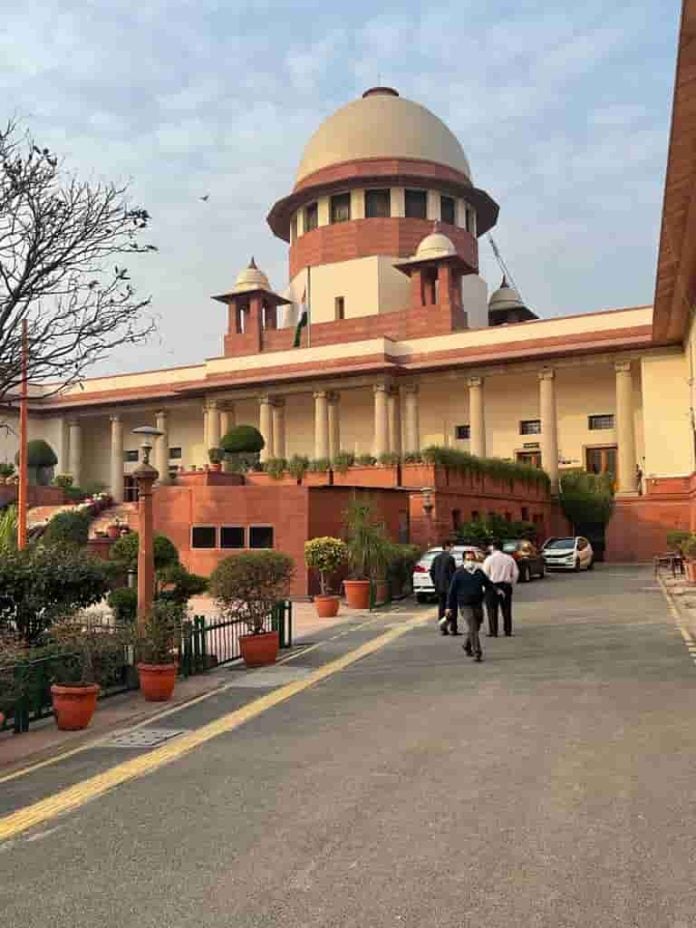The Supreme Court for the 8th day continued hearing a batch of appeals challenging the verdict by the Karnataka High Court which upheld the ban on wearing hijab in government schools and colleges.
A bench comprising Justices Hemant Gupta and Sudhanshu Dhulia heard the matter where petitioners challenged the Karnataka High Court order that effectively empowered the government college development committees in the State to ban the wearing of hijab (headscarves) by Muslim girl students in college campus.
Dushyant Dave , the Senior advocate who represented some of the petitioners challenging the judgement on hijab, told the Supreme Court that hijab adds to dignity same way like the Hindu woman who covers her head.
A bench of Justice Hemant Gupta and Justice Sudhanshu Dhulia told Dave that the definition of dignity keeps on changing with time, and it keeps changing again and again.
Advocate Dave argued that wearing of Hijab by a school girl does not violate anybody’s peace and safety ,also there is certainly no danger to tranquility.
Dave told questioned the bench asking that if the girls want to wear the hijab, whose constitutional right is violated?
The other students’?
The school?
He asked the Court, why is this difference between Sabarimala judgment and the hijab case. The bench replied that in that case petitioners did not have a fundamental right to enter the temple. Dave said now it has been established that everyone can enter the temple.
The bench queried Dave, in many schools, there can be disparity, therefore, uniform is there and one cannot see richness or poverty. Dave said I am for uniform and every institution likes identity.
The bench added that it has a very limited question – whether headgear can be allowed. Dave said uniform is an unnecessary burden in society and most can’t afford it, and pointed out that he sees this with his caddies in the golf course.
ave claimed that a series of acts in Karnataka targeted the minority community. Solicitor General Tushar Mehta, representing the Karnataka government, interjected saying, “We are not in a public platform. Please stick to pleadings”.
Dave submitted, why is it that suddenly after 75 years the state thought of bringing this type of prohibition? It came like a bolt from the blue. He added that Article 25 is crystal clear, and the constituent Assembly debates cement that. Dave emphasized that the test is not essential practice, but religious practice. He cited that in deciding the question, whether a given religious practice is an integral part of the religion or not, the test always would be whether it is regarded by the community following the religion or not.
Dave concluded his arguments for the day. The apex court has started hearing the Karnataka government counsel and the hearing will continue in the afternoon session.
The Karnataka High Court had on March 15 upheld a Karnataka government order (GO) effectively empowering college development committees of government colleges in the State to ban the wearing of hijab (headscarves) by Muslim girl students in college campus.
The petitioners – Muslim girl students from various colleges in Karnataka – had approached the High Court after they were denied permission to attend classes on account of wearing hijab.
A three-judge Bench of then Chief Justice Ritu Raj Awasthi and Justices Krishna S Dixit and JM Khazi had held that:
– Hijab is not a part of essential religious practices of Islam;
– Requirement of uniform is a reasonable restriction on the fundamental right to freedom of expression under Article 19(1)(a);
– The government has the power to pass the GO; no case is made out for its invalidation.
One of the pleas before the top court has argued that the High Court “failed to note that the right to wear a Hijab comes under the ambit of ‘expression’ and is thus protected under Article 19(1)(a) of the Constitution.”
It has also contended that the High Court failed to take note of the fact that the right to wear Hijab comes under the ambit of the right to privacy under Article 21 of the Constitution of India.
During the previous hearing, a bench of Justices Hemant Gupta and Sudhanshu Dhulia asked the petitioners as to how far Constituent Assembly Debates (CAD) can be relied on by the Court while examining the scope of Article 25 of the Constitution.


